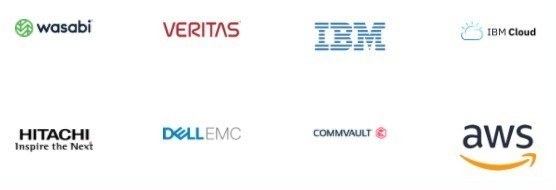Organizations have always relied on data to power their operations in today’s digital world. It’s no secret that the protection of data continues to be a top priority for businesses worldwide. Now, regulators are imposing stricter guidelines to ensure organizations can mitigate risks and maintain business continuity in the face of disruptions. One such regulation is DORA.
What is DORA?
The Digital Operational Resilience Act (DORA), implemented by the European Union (EU), is designed to enhance the operations of financial services organizations in the EU. The regulation ensures that financial institutions, such as banks, can withstand and recover from operational disruptions, including cyberattacks, technical failures, and other external threats. The aim is to standardize how organizations approach operational resilience, focusing on aspects like IT risk management, incident reporting, and the continuity of critical services. DORA mandates organizations to prepare for and quickly recover from potential disruptions, with a specific focus on data protection strategies.
Who does it apply to?
DORA applies to all financial institutions and all Information and Communications Technology (ICT) organizations interacting and related to the associated financial institutions, which encompasses many other third-party service providers like cloud and data management firms. Any company with entities providing financial services or a third-party ICT providing services within the EU must comply.
What are the top requirements of DORA for data protection?
DORA specifically impacts data protection by enforcing stringent requirements on how organizations manage their data, recover from data loss or corruption, and ensure that backup systems are secure and reliable. Under DORA, organizations must be proactive to protect their data against loss, unauthorized access, and corruption. The financial services firms and associated third parties must implement robust security measures and follow the best practices for data encryption, access controls, and vulnerability assessments, including for example, adherence to GDPR (General Data Protection Regulation). Failure to protect sensitive customer or financial data can lead to significant legal and financial penalties.
DORA mandates that organizations develop and implement comprehensive data backup and recovery strategies to minimize downtime and financial losses during disruptions. The regulation stipulates that backups should be stored securely and regularly tested to ensure they can be restored when needed.
Some of the key components include:
- Regular Data Backups: Organizations must maintain regular backups of critical systems and data, ensuring they are up-to-date and available for recovery.
- Geographically Distributed Protection: DORA encourages organizations to store backups in multiple locations, reducing the risk of data loss due to regional disruptions.
- Data Protection Verification and Testing: Backup systems should be regularly tested and verified for reliability and performance, ensuring that data can be quickly restored after an incident.
- Redundancy and Fault Tolerance: To ensure high availability, data protection systems should be designed with redundancy, ensuring that even if one system fails, operations can continue without disruption.
DORA also establishes a framework for incident reporting, requiring organizations to report significant disruptions to regulatory authorities promptly. The regulation emphasizes the need for a rapid response and recovery plan to restore operations quickly and in a secure manner.
What does this mean for applicable companies for data protection?
- Increased Focus on Data Security and Resilience: Organizations will need to invest more heavily in securing data and improving their overall resilience. This includes enhancing their cybersecurity measures and ensuring that they can recover from data loss or corruption quickly.
- Implementation of Optimized Data Protection Solutions: Many organizations may need to modernize and optimize their infrastructure to comply with DORA’s stringent requirements. This could include implementing cloud-based solutions with multiple redundancy layers, adopting automated systems, and ensuring rapid data restoration capabilities.
- Comprehensive Testing and Auditing: Financial institutions will need to establish regular testing schedules for their data protection processes. This involves not just testing for functionality but also evaluating the speed and reliability of data recovery in the event of an incident.
- Vendor Management and Risk Assessment: DORA’s focus on third-party providers means organizations will need to reassess their relationships with external vendors. Comprehensive due diligence will become a critical part of the procurement process, ensuring that service providers meet resilience and data protection requirements.
DORA has significant implications for how organizations in the financial sector approach data protection. By enforcing strict guidelines around data resilience, organizations are required to take a proactive and comprehensive approach to protect their data and ensure they can recover from disruptions in a timely and secure manner. The regulatory shift pushes businesses to implement more robust systems, conduct regular testing, and collaborate with third-party providers to maintain operational continuity. The benefits are clear: improved data security, enhanced business continuity, and a more resilient operational framework that can withstand the challenges of the modern digital landscape.
FalconStor StorSafe™ can help with DORA compliancy by optimizing current backup and recovery with optimized off-host backup capabilities, advanced cybersecurity and ransomware protection, active replication for fast disaster recovery, and more. StorSafe can even help to reduce data protection costs 60% or more, even when necessary additional infrastructure costs are included.



